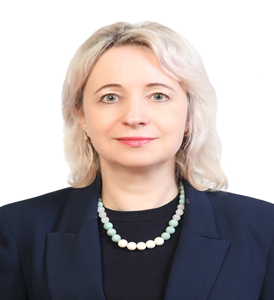The Transformation of Higher Education in South Korea: Navigating Between the Social Demand of the State and Traditions

Abstract
This presentation examines the current transformation of the higher education environment in the Republic of Korea, highlighting the dual influence of enduring Confucian educational traditions and evolving state and societal demands. The restructuring of the higher education system is driven by profound economic, social, and demographic changes, necessitating a reevaluation of institutional roles and priorities.
In this paper, we analyze several key policy measures undertaken in response to two major challenges facing South Korea’s higher education system: the declining birth rate and the evolving labor market shaped by the impending Fourth Industrial Revolution. These measures include the Glocal University 30 consolidation initiative, the internationalization of education, an increased emphasis on STEAM disciplines, the promotion of interdisciplinary integration, and the implementation of micro- credentialing systems.
Furthermore, the rise of neoliberal economic policies in the 21st century has introduced market-oriented governance mechanisms and commercialization into South Korea’s higher education sector. These developments have reshaped the structure and function of universities, presenting both opportunities for innovation and significant challenges regarding equity, access, and academic standards.
Bio
Dr. Janna Ballod is an Assistant Professor of the International Business and Languages department, and Executive committee member of the Language and Culture Education Center and Multicultural Studies Center at Seokyeong University, Seoul. Dr. Ballod majored in Linguistics and Intercultural Communication and received a Master of Art in Cultural Studies at Moscow State Linguistic University and in Political Science and International Relations at Yonsei University. Professor Ballod received PhD in International Studies at Hanyang University by dissertation entitled “Russian Public Diplomacy on the Korean Peninsula: Changes and Continuity”. She is a director at the Korean Association of International Studies (KAIS), and holds membership at the Korean Association of Eurasian Studies (KASEUS), Korean Association of Russian Language and Literature (KARLL), KOTESOL and other. Her research interests include Public Diplomacy and Soft Power, Diaspora and Multiculturalism, Political Linguistics and Translation Studies. zhanna73@hotmail.com
Reflective Practice: Teacher Metaphors
Metaphor influences our behavior as teachers (Bowman, 1996). Thus, it is essential to cultivate an awareness of how we metaphorically conceptualize our role as educators. This session will briefly attempt to convey why we need to attend to teacher metaphors. Then, the facilitator will provide a list of the dominant metaphors among teachers (Farrell, 2015). Attendees will be invited to consider the strengths and limitations of several teacher metaphors. Afterwards, attendees will consider their own personal teacher metaphors. Finally, attendess will generate personally novel teacher metaphors that conceptualize their practice.
Christopher Miller currently serves as the President of the Seoul chapter for KOTESOL. He has been enthusiastic about reflective practice since 2013. He is particulary interested in articulating implicit assumptions explicitly to achieve greater awareness of the factors driving teacher decision-making. You may contact Christopher at: chriskotesol@gmail.com.


